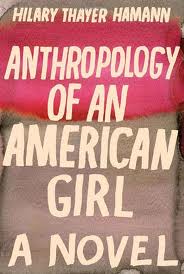You Want to Know Why?
You want to know why I write primarily about girl athletes?
This week, one of the female Ultimate players on the middle school team that I coach was feeling left out. Our team is almost entirely comprised of boys, and while I’ve had a largely positive experience coaching them over the last six years, I know that it can be difficult for the girls to find their figurative place on co-ed teams at this level.  Â
I don’t think that the boys set out not to throw to the girls, but I think that some of them have a knack for developing tunnel vision. Male and female athletes have different styles and particular strengths. No matter how open a girl may be, there are boys who will look her off every time without even realizing it. I was seeing this habit play out at my practice on Wednesday, and my heart went out to my new player. Not only is she new to the team, or new to the sport. She’s new to team sports in general, and I realized that this could be a critical moment in her budding athletic career.
I suggested that she attend a college women’s Ultimate tournament that was in town this weekend. Women’s Centex has become one of the premier tournaments in the country, and this weekend it welcomed 52 teams from across the United States and Canada. The top 32 were closely matched, and all were impressively athletic and well-trained. I imagined that it might be good for my young protégé to see the talent, the support, and the camaraderie on these teams. While her current team is co-ed, I thought that she might like to see that there are opportunities for girls to play with other girls exclusively. And that women’s sports are, undoubtedly, different. I wanted her to see that there’s more Ultimate in her future, if she wants it.
I hosted the University of Michigan at my house for the tournament. Twenty girls piled into my house beginning on Thursday night, sprawling out on every open space. We had sleeping bags, pillows, blankets, air mattresses, cleats, field bags, dirty uniforms and water bottles scattered throughout every room. And I loved it.
I woke up on Saturday morning to the sound of excited chatter outside my bedroom door. My dog had adopted the girls overnight, opting to curl up in someone’s sleeping bag rather than my bed. I heard captains reminding their teammates to start drinking water now, to remember their sunscreen, to figure out who was riding in which car. They talked about the blue-and-yellow nail polish that they were all wearing.Â
One girl asked, “Is there any chance in the world that it will rain today?,†and she was met with a resounding NO when her peers looked outside at the sunny, 75-degree Texas day. “I’m going to kill all of you who said no if it does!†she sniped. But there was no question that she was laughing through the statement.Â
Another player talked about frantically slamming a moth in her laptop in the middle of the night, much to the delight of her hysterical teammates.Â
My favorite part? Before leaving, the girls opened a batch of banana-nut muffins, baked by someone that I assumed to be a former teammate or coach, or perhaps an injured teammate who couldn’t be there. She’d attached individual messages for the girls, and one for the entire team. The team message had four directives for the weekend:
1.       Respect yourself.
2.      Respect your teammates.
3.      Respect your opponents.
4.      F**k them up!
Why do I love this message so much? Because it embodies one of the great things about women’s sports: That you can have integrity, maintain pride, be supportive, and show respect…at the same time that you are aggressive, competitive, and confident. And there was no denying the emotional connection between these young women as they each opened and read their personal notes. These girls are all unique and different, but they have a true affection and respect for each other. They are loyal, true friends.
Another highlight of Centex began during my first season playing college Ultimate. That spring, my team bet another that we’d win the next time that our teams faced off. We agreed that the losing team had to perform an interpretive dance at Centex a few months later. We won the game, so indeed the other women came to Austin prepared with an elaborate dance…and much to everyone’s joy, it was a spectacle and a hit. The next year, a few other teams arrived at the tournament with choreographed routines. And since then, the Centex Dance-Off has morphed into a full-blown tradition that includes the vast majority of the attending teams, props, costumes, and a prize for the best routine. It represents a sense of community among female athletes. The girls go out and fight hard against each other all day on Saturday, cheer each other on in the dance-off after dinner, and then go back to the mattresses first thing Sunday.  Â
I wanted my young player to see the beauty of Ultimate as a sport, and the special connections on women’s teams.Â
Is there really any question, then, why I write about girl athletes?
